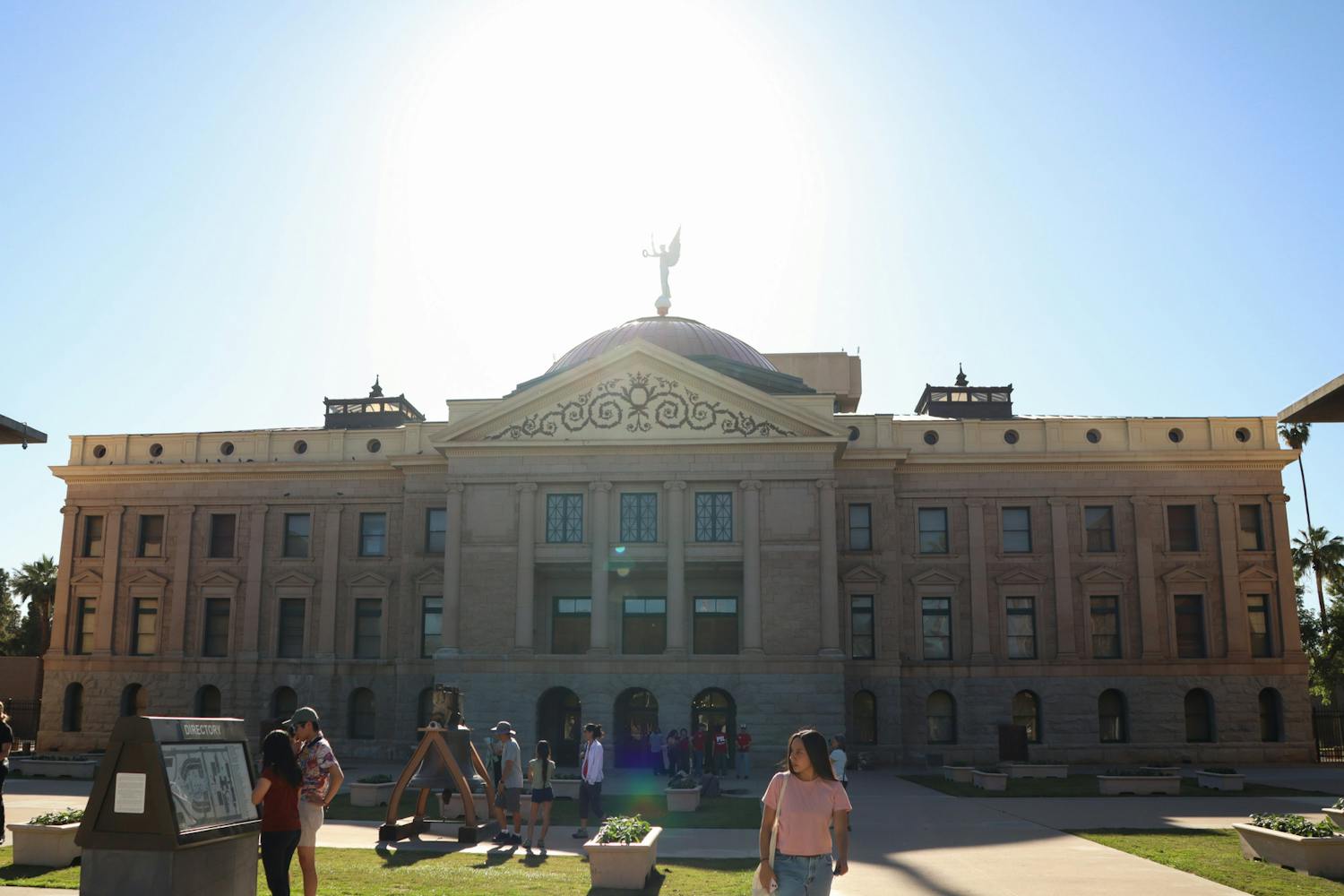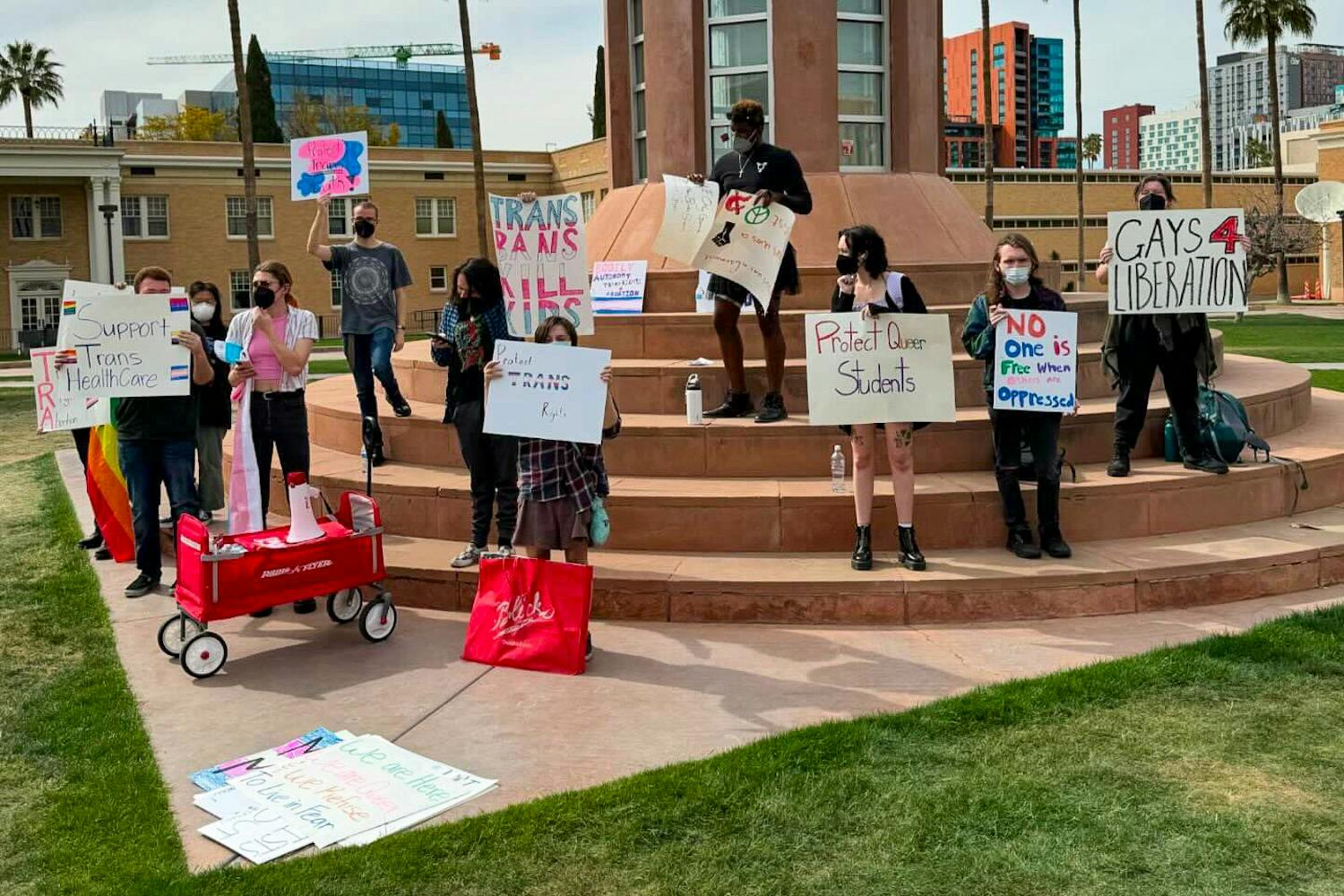Actor Kevin Sorbo is on a roll. The former "Hercules" actor made the news twice in the past few weeks for saying offensive and racist statements about Ferguson protestors. His next target? Atheists.
“They’re just filled with anger and hatred," Sorbo said in an interview promoting his new movie “God is Not Dead.” "On one hand, I feel sorry for them, but on the other I kind of laugh at them. Why? Why would anybody spend so much time ranting and raving about something they don’t believe in?”
Obviously Sorbo feels very strongly on a topic of which he's only willing to present one side, but it does pose the question: Why do atheists care about religion?
Despite clear reasons like the countless wars fought for religion and the millions of lives lost due to such unnecessary causes, religion, namely Christianity, such as Sorbo was “ranting and raving” about, has been used to stifle the voices of atheists as well as minor religions in America for years. Even to this day, America seems to lack a true separation of church and state.
One of the more glaring arguments against Sorbo and his proponents is the rise of the gay rights movement. It was a blatant example of religion almost completely halting social justice for years upon years.
While that is by far the most broadcasted, there are countless other cases of religious interference in recent years. Just a few of them include the still prominent blue laws which prohibit buying alcohol and other goods on Sundays, the hindrance of stem cell research, the toss out of the Elk Grove Unified School District v. Newdow case in 2004 and the Boy Scouts of America, a publicly funded institution, not allowing the full involvement of atheists and, until recently, homosexuals. The list goes on and on.
But among the many incidents, one seems to stand out: In Arkansas, Maryland, Mississippi, South Carolina, Tennessee and Texas, atheists or anyone else who “denies the existence of a Supreme Being” is not legally permitted to run for office. Even if it was within his legal right to run, due to an enduring stigma against atheists and agnostics, there is a decent chance that any outspoken atheist would never be elected because, to this day, no Congressman campaigning as an atheist has. Arkansas, additionally, does not allow agnostics or atheists to testify as witnesses in court.
We claim we have separation of church and state, and yet I don’t see anyone saying “One nation under Allah,” or “In Shiva We Trust.” I must have missed the memo where we turned into a theocracy.
The point is, the name of religion has been used continuously to justify cruelty and hatred. There’s nothing wrong with believing in something, or with religion as a concept. In fact, faith can be an amazing quality to have. It becomes an issue, however, when religious institutions impose their morals onto those who don’t believe in them.
The goal here, it seems, is not to “rant and rave,” but to gain a true separation of church and state. The goal isn’t to “chip away at religion." It’s to find equality.
Reach the columnist at mjanetsk@asu.edu or follow her on Twitter @meganjanetsky
Editor’s note: The opinions presented in this column are the author’s and do not imply any endorsement from The State Press or its editors.
Want to join the conversation? Send an email to opiniondesk.statepress@gmail.com. Keep letters under 300 words and be sure to include your university affiliation. Anonymity will not be granted.



